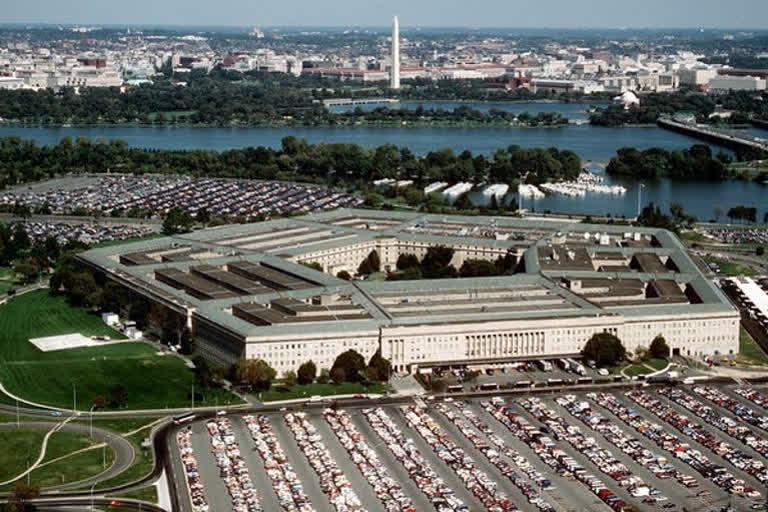Washington (US):US Defence Secretary Lloyd Austin along with two of his top generals have told Senators that the ties that Pakistan and its spy agency ISI have with the Taliban can only be discussed within closed doors. In the public domain, they can only say that the relationship between the two is going to become increasingly complex post withdrawal.
"An in-depth conversation about Pakistan probably would be better suited in a closed hearing here so,” Austin told members of the Senate Armed Services Committee when Senators asked pointed questions about recent news reports of the Inter-Services Intelligence (ISI), the intelligence wing of Pakistan Army, and its ties with the Taliban.
His two generals, Gen Mark Milley, Chairman of the US Joint Chiefs of Staff, and Gen Frank McKenzie, Commander of US Central Command said the same. "I've had several conversations over the years and also recently with Pakistanis and there's no question in my mind that the relationship between Pakistan and the Taliban is going to become increasingly complex. There's a whole series of issues there that have national security interests for the United States that are best handled in a different session,” Milley said.
ISI chief Lt Gen Faiz Hameed dashed to Kabul on an unannounced visit in August last week and met top Taliban leaders. He was the first high-ranking foreign official to visit Afghanistan since the Taliban seized the Afghan capital in mid-August. Three days after Hameed's visit, the Taliban announced an interim government dominated by the hardline leaders of the insurgent group. At least 14 members of the Taliban's hardline interim government are on the UN Security Council blacklist, including acting Prime Minister Mullah Mohammad Hasan Akhund and his both deputies.
Read: Putin, Erdogan sit down for talks on war-torn Syria
The inclusion of top leaders of the pro-Pakistan Haqqani Network in the interim government is an indication of the influence Islamabad, especially its intelligence agencies have over the Taliban. Pakistan's relationship with the Taliban is going to become significantly more complicated as a result of the US withdrawal from Afghanistan, McKenzie said.
